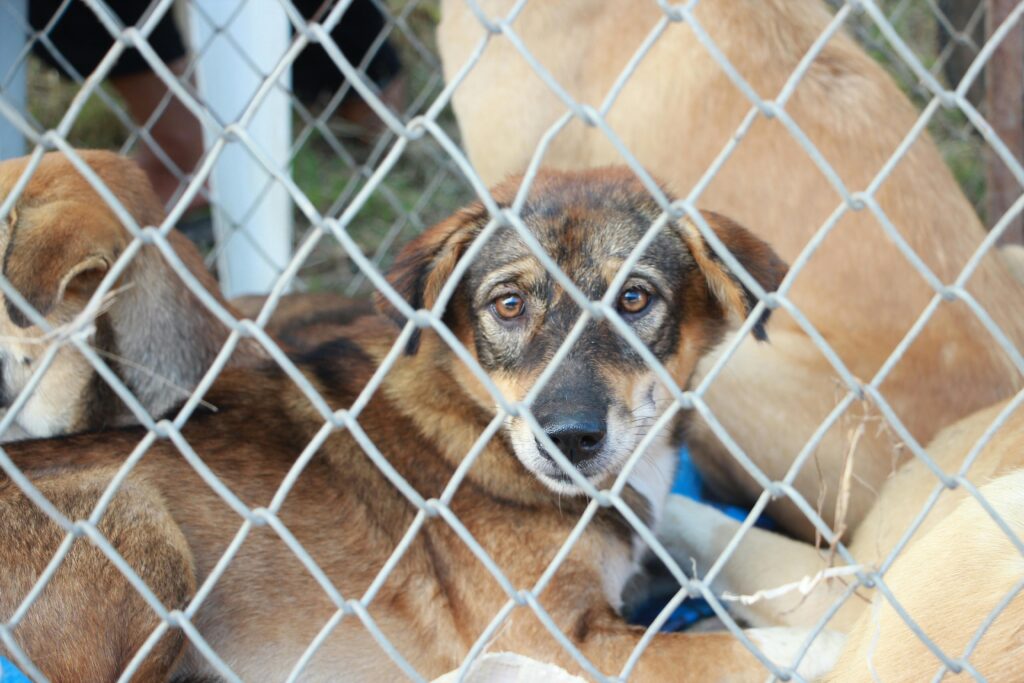
Your adorable new puppy is full of life, energy, and curiosity — but along with all that excitement comes the responsibility of protecting them from common parasites. Fleas, ticks, and worms may seem like small threats, but they can cause big problems for your young pup. That’s why understanding puppy parasite protection is a critical part of responsible pet ownership.
Whether you’re a first-time dog parent or adding another four-legged friend to your family, here’s everything you need to know to keep those pesky parasites at bay 🐾.
Why Puppy Parasite Protection Matters 🩺
Parasites aren’t just annoying — they can lead to serious health issues. Puppies, with their developing immune systems, are especially vulnerable. Fleas can cause intense itching, allergic reactions, and anemia. Ticks may transmit dangerous diseases like Lyme disease or ehrlichiosis. Intestinal worms can stunt growth, cause vomiting, and even be passed to humans.
Proper puppy parasite protection means keeping your dog healthy, comfortable, and safe from both short-term discomfort and long-term complications.
Common Parasites That Affect Puppies 🦠
1. Fleas 🐜
Fleas are tiny, fast-moving insects that live on your puppy’s skin and feed on their blood. A single flea can lay hundreds of eggs, quickly leading to a full-blown infestation.
Signs of fleas:
- Scratching or biting at skin
- Red bumps or scabs
- Flea dirt (tiny black specks) in fur
- Hair loss from excessive itching
Even indoor puppies can get fleas through contact with other pets, people’s clothes, or visiting outdoor areas. That’s why year-round flea protection is a must.
2. Ticks 🕷️
Ticks are slow-moving but dangerous parasites that attach themselves to your puppy’s skin and suck blood. They can transmit diseases that affect your puppy’s joints, organs, and immune system.
Common tick-related diseases include:
- Lyme disease
- Anaplasmosis
- Rocky Mountain spotted fever
Where ticks hide:
- Grassy trails
- Wooded areas
- Leaf piles or bushes
After walks or outdoor playtime, always check your puppy thoroughly — especially around the ears, neck, paws, and tail area.
3. Worms 🐛
Puppies are especially prone to intestinal worms like roundworms, hookworms, whipworms, and tapeworms. These worms live in your pup’s digestive system and may be passed from the mother or picked up from contaminated soil or feces.
Signs of worm infection:
- Bloated belly
- Diarrhea or vomiting
- Poor weight gain
- Visible worms in stool
Roundworms and hookworms are zoonotic, meaning they can be transmitted to humans — making deworming an important step for both pet and family safety.
How to Protect Your Puppy from Parasites 🛡️🐕
The good news? Puppy parasite protection is easier than ever with the right preventive care, hygiene practices, and professional support.
1. Start Early with Vet Guidance 👩⚕️🐾
Your vet should examine your puppy early on and help create a parasite prevention schedule tailored to their age, weight, and environment. This usually includes:
- Flea/tick preventives (oral or topical)
- Deworming treatments
- Stool sample tests to check for worms
Puppies typically get their first deworming treatment at 2-3 weeks old and continue every few weeks until around 12 weeks of age, followed by monthly or quarterly maintenance.
2. Keep a Clean Environment 🧼
Parasites thrive in dirty, cluttered, or poorly maintained spaces. Help prevent infestations by:
- Washing your puppy’s bedding and toys weekly
- Vacuuming carpets, rugs, and furniture regularly
- Cleaning up feces promptly from your yard or walks
- Washing your hands after handling waste or soil
Regular grooming is also important — brushing and bathing your puppy helps spot early signs of fleas or ticks.
3. Use Vet-Approved Preventive Products 💊
There are a variety of products available to protect your puppy from fleas, ticks, and worms. These may include:
- Monthly oral tablets
- Spot-on topical treatments
- Flea/tick collars
- Deworming chewables
Avoid over-the-counter medications without veterinary approval — some can be harmful, especially for small or young puppies.
4. Perform Routine Checks 🔍
It’s important to check your puppy regularly for signs of parasites. Run your hands over their body, part the fur to inspect the skin, and look out for red areas or black specks. After outdoor time, tick checks are essential.
Inspect their stool too — although not pleasant, it can reveal the presence of worms, mucus, or other signs of digestive trouble.
Can Humans Catch Parasites from Puppies? 🧍♂️🐕
Yes, some parasites can be transmitted to humans — especially children or people with weakened immune systems. This includes roundworms, hookworms, and certain types of fleas.
Practicing good hygiene (like washing hands after petting or cleaning up after your dog), regular deworming, and keeping your puppy parasite protection routine up to date will help protect the whole family.
Final Thoughts 🐕❤️
Puppies bring endless joy — and a little bit of mess and mischief too. But one thing you definitely want to avoid is a parasite problem. Staying consistent with puppy parasite protection ensures your furry friend stays healthy, comfortable, and happy during their most important months of development.
By working closely with your vet, using the right preventive products, and keeping a clean environment, you’ll shield your pup from fleas, ticks, and worms — giving them the best start in life 🐾🛡️. Petsdogpuppy
